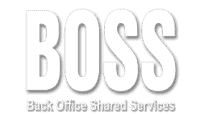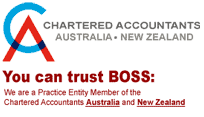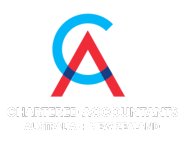Eliminate Net Write-offs: 5 Steps Towards Success

Is your firm struggling with write-offs? Benchmark reports show that many firms in the industry have found ways to overcome this challenge and achieve zero net write-offs. This data suggests that finding practical solutions is indeed possible.
However, it is important to note that there is still significant variation in how different firms approach write-offs.
While some firms still hold the belief that net write-offs are an inevitable part of the business, others have taken a different approach. These forward-thinking firms have effectively banned write-offs altogether. Instead, they choose to charge the work-in-progress (WIP) balance once the job is completed.
This alternative approach requires careful management and close monitoring of projects throughout their lifecycle. By closely tracking project progress and promptly addressing any issues that may arise, these firms can mitigate the need for write-offs. This proactive approach not only allows them to maintain a healthier financial position but also helps them develop stronger relationships with clients, who appreciate the transparency and accountability that comes with zero net write-offs.
To achieve similar success in mitigating write-offs, firms can consider implementing these practical actions. First and foremost, improving project management and ensuring effective communication between different teams and stakeholders is crucial. Regular monitoring of project progress and making necessary adjustments along the way can significantly reduce the likelihood of write-offs.
Secondly, it is important to adopt a proactive approach to risk management. Anticipating potential challenges and having contingency plans in place can go a long way in minimising the need for write-offs. This may include conducting thorough risk assessments at the outset of a project and actively managing and addressing any identified risks throughout its duration.
Lastly, fostering a culture of accountability within the firm is essential. Encouraging employees to take ownership of their work and promoting transparency and responsibility can greatly contribute to reducing write-offs. Providing training and resources to enhance financial literacy and project management skills can also empower employees to effectively manage projects and mitigate risks.
Although write-offs have been a common challenge for many firms, there are practical steps that can be taken to address this issue. By looking to the success of other firms and adopting a proactive and transparent approach, it is possible to achieve zero net write-offs. Implementing stronger project management practices, proactive risk management, and cultivating a culture of accountability can bring about significant improvements in reducing write-offs and ultimately improving the firm’s financial performance.
To ensure success in minimising your net write-offs, it is crucial to establish clear expectations from the beginning. This holds true for both the accountants handling the job and the clients involved. Follow these 5 steps to guarantee a successful process.
Firstly, it is essential to set a job budget upfront for all client work. While many firms focus on developing budgets for higher-value projects, it is equally important not to overlook lower-fee jobs where write-offs can be significantly higher. Be cautious when setting a budget that ignores the realities of the previous year’s work in progress (WIP) and write-offs.
Secondly, inform your clients about the scope of work and provide them with a fee range for completing the assigned tasks. Ideally, each client should receive an engagement letter at the beginning of every financial year. This letter should clearly outline the services you will provide and specify the associated fees. Additionally, it should be emphasised that any work performed outside of this agreed scope will incur an additional fee.
By following these steps, you can ensure transparency and clarity throughout your professional engagements, leading to successful outcomes and minimised net write-offs.
It is important to provide training for your staff so that they can quickly identify any changes in the scope of work that may impact the fee. A prime example of this is when the quality of work from the client declines, as it is not fair for the firm to bear the cost in such cases.
Keeping the client informed about significant changes in the scope of work as early as possible is crucial. When clients are kept in the loop throughout the process, they are more likely to be understanding and accepting of any additional fees that may arise.
Additionally, closely monitoring Work-in-Progress (WIP) versus budget is essential. Implementing a system that alerts client managers when WIP reaches 50% of the agreed budget is recommended. By identifying any issues early on rather than at the end of a project, problems can be addressed promptly and efficiently.
To minimise net write-offs, it is important to prioritise the scope of work, budgets, and work in progress. While some write-offs may be unavoidable in certain cases, it is crucial to prioritise write-ups where the value of the job surpasses the WIP incurred in completing it.




